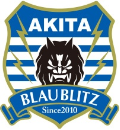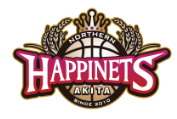TDK Museum's Community Activities
The TDK Museum focuses on three sets of activities — education,
the environment, and sports — to connect with the local community.
Education and Child-rearing
Working with local educational institutions to assist with science education, we support the young talent that will lead the future.
Electronics Workshop
With the aim of having children learn an affinity for science and the fun of Monozukuri (manufacturing excellence), since 2007 TDK has been holding electronics workshops for children in grades four to six of elementary schools in and around Akita Prefecture.
The students think for themselves as they proceed in line with an operational procedures manual. They are sometimes stumped by not knowing how to use a screwdriver or wire cutters, and struggle with their first experience of soldering, but they gradually get the hang of it and become absorbed in soldering as they mount components on electronic circuit boards.
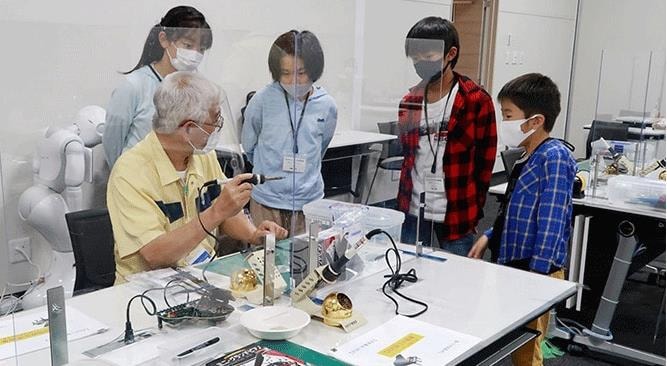
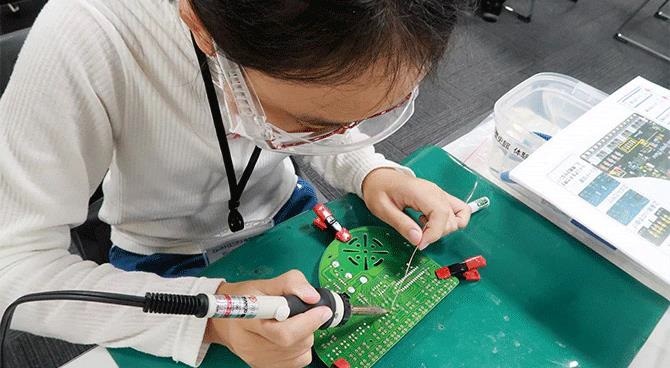
Soldering makes a strong impression on the students. Their feedback on the workshop includes comments such as, “The timing of the hardening of the solder was difficult,” and “I was able to solder for the first time.” We also receive many comments that express students’ enjoyment of working with electronics, such as, “By putting it together I learned how electronic devices work,” and “Attaching various components one by one was difficult, but I learned how much fun Monozukuri is.”
Staff ensure that the workshops are conducted safely, but take care to allow the students to complete the tasks on their own as much as possible. Feedback from the students’ guardians include comments that make the staff happy, such as, “I’m very happy that I was able to see my child acting so earnestly, which is something I don’t see at home.”
The TDK Museum will further enrich the range of workshops it holds and carry out events that allow elementary school students to experience the fun of science and of making things, as it hopes the number of children with an interest in science will increase through learning the history of TDK.
On-Site Lessons
In 2016 TDK reopened its TDK History Museum as the TDK Museum, focusing on the concept of magnetism, which was the basis of TDK's founding. At the same time, we began offering on-site lessons mainly at junior high schools in Nikaho City. Our lessons are aimed at complementing the lessons that second-year middle school students receive in electricity and magnetism, to enhance their understanding of this subject.
At our on-site lessons, students make earphones to learn about electromagnetic induction. Electromagnetic induction is a phenomenon in which a potential difference (voltage) is generated in a conductor due to changes in magnetic flux; it is a foundational concept in electricity and magnetism. The students first make a bobbin coil, which comprises a central cylinder around which electrical wire is wound. Students see electromagnetic induction in action by lighting LED bulbs with the bobbin coils. The students then paste neodymium magnets to the bobbin coils to make earphones, which they connect to a digital audio source to hear music. Finally, using familiar electrical appliances as examples, they learn the theory of electromagnetic induction in simple form.
Students respond positively to the on-site lessons, saying things like, "I learned that electromagnetic induction is used in unexpected places"; "I'll remember today's lesson when I hear the term 'electromagnetic induction' "; and "I wasn't good at science, but now I'm interested in it."
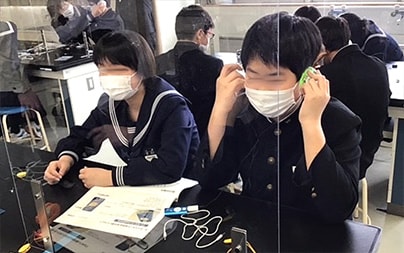
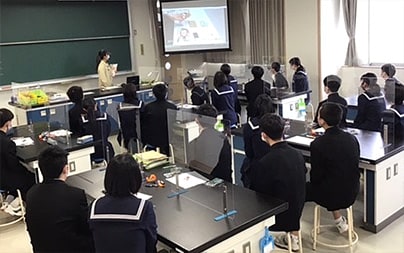
The TDK Museum will continue to contribute to improving young people's science abilities through programming classes and on-site lessons.
Special Exhibitions / Experience Events
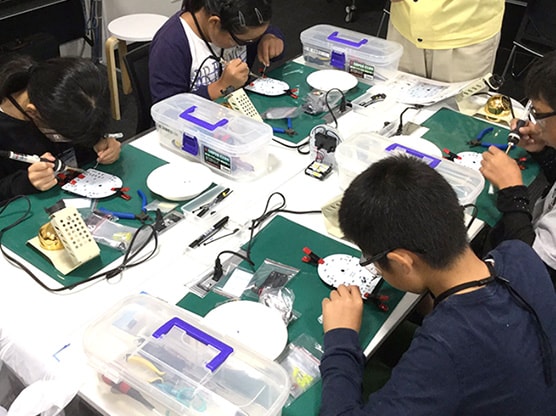
The TDK Museum holds special exhibitions where visitors can experience the latest technology. We also offer hands-on electronics classes where elementary school students can have fun learning the basics of electronic engineering.
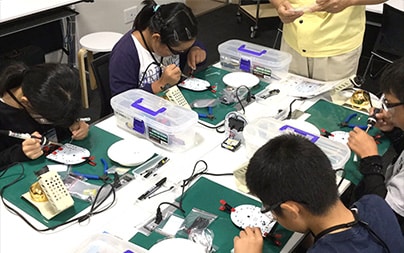
The Environment and Culture
The TDK Museum operates using environmentally friendly hydroelectric power.
With the TDK Museum as a major sight-seeing attraction in the Nikaho area, our activities make connections with the local community.
Operating with 100% Clean Electricity from Akita Prefecture
The electricity used by the TDK Museum is supplied by 13 hydroelectric power plants in Akita Prefecture. The Museum uses about as much electricity as 60 homes,*all of which is CO2free**clean energy.
*The Museum's annual power consumption is approximately 270,000 kWh. Assuming that the annual power consumption of an ordinary household (a family of four) is 4,800 kWh, the calculation works out to 270,000 kWh/4,800 kWh, or about 57 households.
**"CO2-free" refers to power generation without CO2emissions.
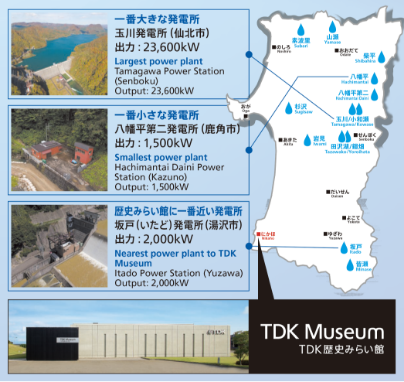
Local Nature and Technology
From 2019 to 2021, the TDK Museum offered a VR experience in which visitors could enjoy a virtual hang glider flight from the fifth station of Mt. Chokai down to the Museum. We coupled actual flight footage with VR technology to allow visitors to experience a view of the area's natural scenery from a different perspective than usual.
VR hang glider experience report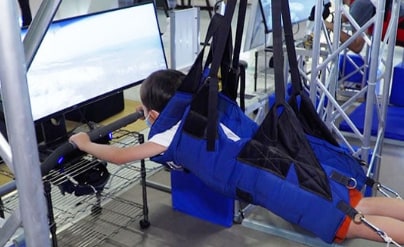
Nikaho Museum Collaboration Council
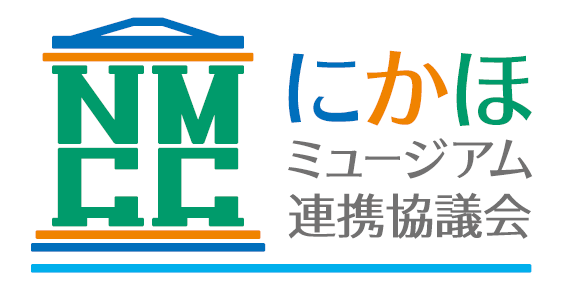
◆Basic Policy
・Five museums (the Children’s Ferrite and Science Museum of the Nikaho City Board of Education, the Shirase Antarctic Expedition Memorial Museum, the Nikaho City Kisakata Local Museum, the Uichiro Saito Memorial Museum, and the TDK Museum) shall mutually collaborate in their operation and public relations and aim to create a vibrant local community.
・Elementary and junior high schools under the jurisdiction of the Nikaho City Board of Education and the TDK Museum shall collaborate in the development of human resources with the aim of enabling children to learn the teachings of forebears who have nurtured the region and to enhance their local understanding and study activities.
◆Objective
・Based on the Nikaho City Board of Education and TDK Museum Agreement on Comprehensive Collaboration, the Nikaho Museum Collaboration Council shall endeavor to promote mutual collaboration among members with the purpose of contributing to promotion of the museum business.
◆Basic Projects
(1) Exchange of intellectual and human resources and person-to-person interchange in the fields of education, research, and social contributions
(2) Events related to the joint utilization of historical and cultural resources
(3) Joint public relations
(4) Other necessary projects
Nikaho Museum
Children's Ferrite and Science Museum
Shirase Antarctic Expedition Memorial Museum
Sports
The TDK Museum supports local sports teams.
TDK's baseball team is based in Akita.
TDK supports two local sports teams: the Akita Northern Happinets in the professional men's basketball league (B League) and, as sponsor, the Blaublitz Akita men's soccer team in the J2 League (which until 2010 was the TDK Soccer Club).

